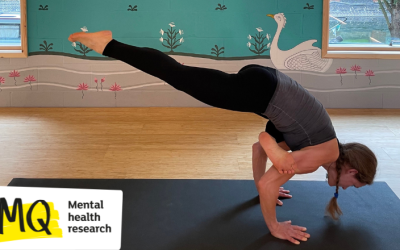New research has found that taking a one-week break from social media could lead to significant improvements in a person’s wellbeing, depression and anxiety, with the hopes that, in the future, it could be suggested to help people manage their mental health.
Researchers from the University of Bath examined the mental health effects of a week-long social media break. Participants were asked to clear nine hours of their week that would otherwise have been spent using social media.
What was the study?
The study gathered 154 participants aged 18 to 72 who used social media daily. The volunteers were randomly allocated into either an intervention group, where they were asked to stop using all social media for one week or a control group, where they could continue scrolling as usual. At the beginning of the study, the researchers took baseline scores for anxiety, depression and wellbeing.
What did the study find out?
The participants who were asked to take the one-week break had significantly improved wellbeing, depression, and anxiety than those who continued to use social media, suggesting a short-term benefit.
Lead researcher from Bath's Department for Health, Dr Jeff Lambert, explains: "Scrolling social media is so ubiquitous that many of us do it almost without thinking from the moment we wake up to when we close our eyes at night.
"We know that social media usage is huge and that there are increasing concerns about its mental health effects, so with this study, we wanted to see whether simply asking people to take a week's break could yield mental health benefits.
"Many of our participants reported positive effects from being off social media with improved mood and less anxiety overall. This suggests that even just a small break can have an impact.
"Of course, social media is a part of life, and for many people, it's an indispensable part of who they are and how they interact with others. But if you are spending hours each week scrolling and you feel it is negatively impacting you, it could be worth cutting down on your usage to see if it helps."
The team now want to build on the study to see whether taking short social media breaks can help different demographics (e.g., younger people or people with physical and mental health conditions). The team also want to study the effects over an extended period to see if the benefits last over time. If so, in the future, they speculate that this could form part of the suite of clinical options used to help manage mental health.
Social media use isn't the only factor that needs to be taken into account when we examine mental health. As shown in this MQ-funded study, socio-economic status, demographic and in young people parental mental health are all important factors to consider.
The study found that moderate use of social media do not play an important role in shaping a child's life satisfaction. Higher levels of use is associated with lower levels of happiness, especially for girls but more research is needed to understand how this technology is being used. As well as focusing on high levels of social media use, policymakers should also concentrate on particular demographic groupings and factors affecting the social fabric of the households in which children grow up.
We are researching better mental health for everyone.
With your help, our researchers are making groundbreaking progress to better understand, diagnose and treat mental illness. We're all in this together.
Learn how mental health research changes lives and how you can get involved with this important work:
Want to support more research like this? Even a small donation can help fund mental health research to help the 1 in 4 of us living with a mental health condition.



